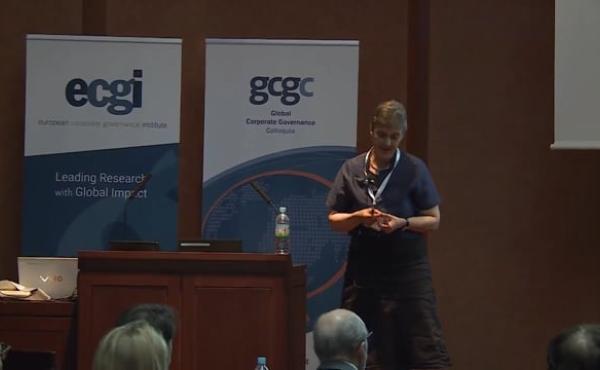Financing Disruption
Professor John Armour presents his paper "Disrupting Finance" at the Global Corporate Governance Colloquia (GCGC) at Stanford University in 2015.
‘Disruptive’ innovations are powerful forces for reshaping activities and generating growth. Yet by definition, the properties (what they can do) and consequences (whether they disrupt) of innovations are not widely understood when they are first explored. This aggravates agency problems in financing innovative projects, increasing the cost of capital. Policymakers, keen to stimulate innovation, are exploring a number of ways of facilitating capital-raising by innovative firms. These range from modifications to securities laws to facilitate ‘crowdfunding’, through the toleration of entrenchment by founders of tech companies that go public, to outright subsidies for investment in innovative firms. We argue that to the extent the source of the problem lies in lack of understanding—a knowledge gap—it is desirable to raise finance from persons with comparative advantage at understanding the innovation in question. Whilst this obviously describes a stylised venture capitalist, we argue that it also helps explain financial contracts between innovative firms and capital markets (dual-class structures), consumers (crowdfunding), and employees (restricted stock). We develop this claim by reviewing contracting practices in relation to both nascent and established firms engaged in innovation, and use it to evaluate various policy initiatives.






